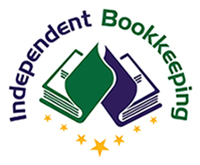In the intricate dance of managing finances, understanding how to maximise your tax deductions is akin to learning the steps to a financial waltz. It’s all about precision, timing, and having a knowledgeable partner—your bookkeeper. For businesses and self-employed individuals, navigating the tax landscape can be challenging, but with the right guidance, you can significantly reduce your tax liability and keep more money in your pocket. Here are some essential tips to help you maximise your tax deductions.
1. Keep Impeccable Records
The cornerstone of maximising your deductions is maintaining thorough and accurate records. Ensure you keep receipts, invoices, and bank statements organised. Digital tools and apps can simplify this process, allowing you to capture and store electronic copies of receipts and invoices. Remember, the HM Revenue & Customs (HMRC) can request evidence of expenses up to six years after the tax year they relate to, so diligent record-keeping is essential.
2. Understand Allowable Expenses
Familiarise yourself with what HMRC considers “allowable expenses.” These are costs directly related to running your business and can include:
Office costs, such as stationery or phone bills
Travel costs, including fuel, parking, train or bus fares
Clothing expenses, like uniforms
Staff costs, for example, salaries or subcontractor costs
Things you buy to sell on, like stock or raw materials
Financial costs, such as insurance or bank charges
Costs of your business premises, like heating, lighting, business rates
Advertising or marketing, including website costs
Each industry may have specific allowable expenses, so consult with your bookkeeper for tailored advice.
3. Claim Capital Allowances
When you purchase assets that you keep to use in your business, like equipment, vehicles, or machinery, you might be able to claim capital allowances. These allowances can help you deduct some or all of the value of the item from your profits before paying tax. Work with your bookkeeper to identify which purchases qualify and how to claim them effectively.
4. Use the Annual Investment Allowance (AIA)
The AIA allows you to deduct the full value of an item that qualifies for capital allowances, up to a certain limit, from your profits before tax. This can be a significant deduction, so plan your capital expenditure to maximise this allowance. Your bookkeeper can advise on the current AIA limit and timing your purchases.
5. Consider Working from Home Allowances
If you’re self-employed or run a business from home, you may be able to claim a portion of your home expenses as business costs. This includes a part of the heating, electricity, Council Tax, mortgage interest or rent, internet and telephone use. Your bookkeeper can help you calculate this based on the hours you work from home or a flat rate, depending on what’s most beneficial for you.
6. Don’t Forget Pension Contributions
Pension contributions can be an effective way to reduce your taxable income. Contributions to a pension scheme are tax-free up to a certain limit. This can be a double win, saving for your future while reducing your current tax bill. Your bookkeeper can explain how pension contributions affect your tax calculations and the limits applicable.
7. Maximise Charitable Donations
Charitable donations made through Gift Aid allow the charity to claim an extra 25p for every £1 you donate. If you’re a higher rate taxpayer, you can claim back the difference between the higher rate of tax and the basic rate on your donation. This can be an effective way to reduce your taxable income while supporting good causes.
8. Stay Informed and Plan Ahead
Tax laws and allowances can change, so it’s crucial to stay informed. Regular reviews with your bookkeeper can ensure you’re always taking advantage of the most current tax-saving strategies. Planning ahead, especially towards the end of the fiscal year, can make a significant difference in maximising your deductions.
By adopting these strategies and working closely with your bookkeeper, you can navigate the complexities of tax deductions with confidence. Remember, every pound saved in taxes is a pound that can be reinvested in your business, saved for the future, or spent on something that brings you joy.

